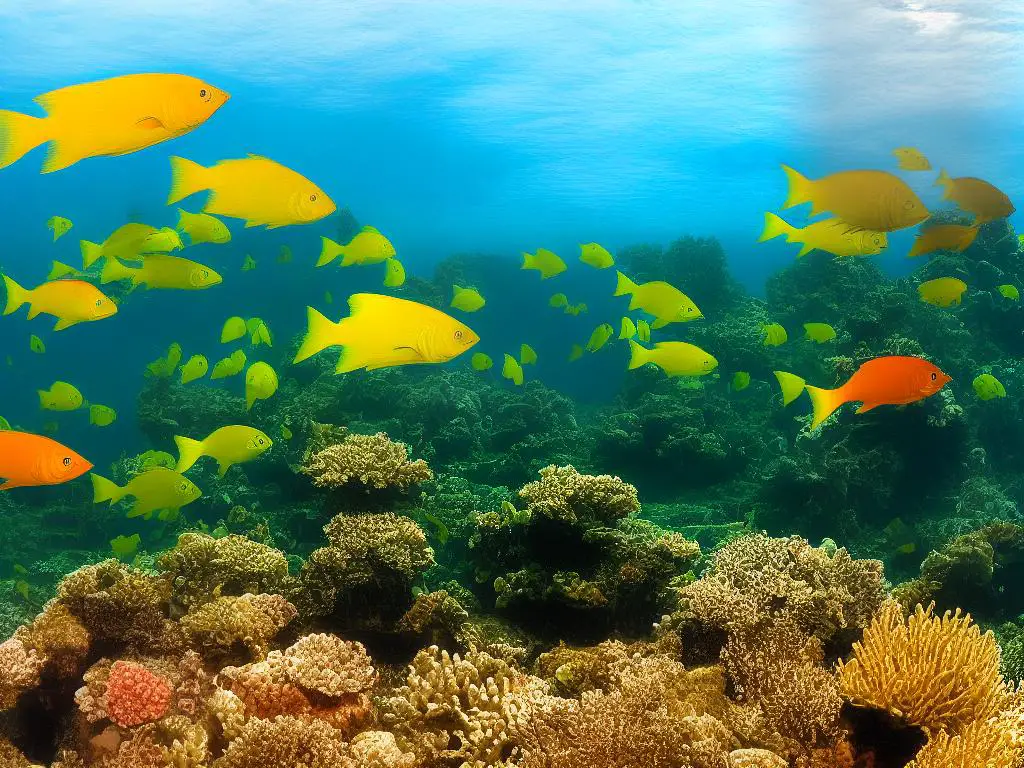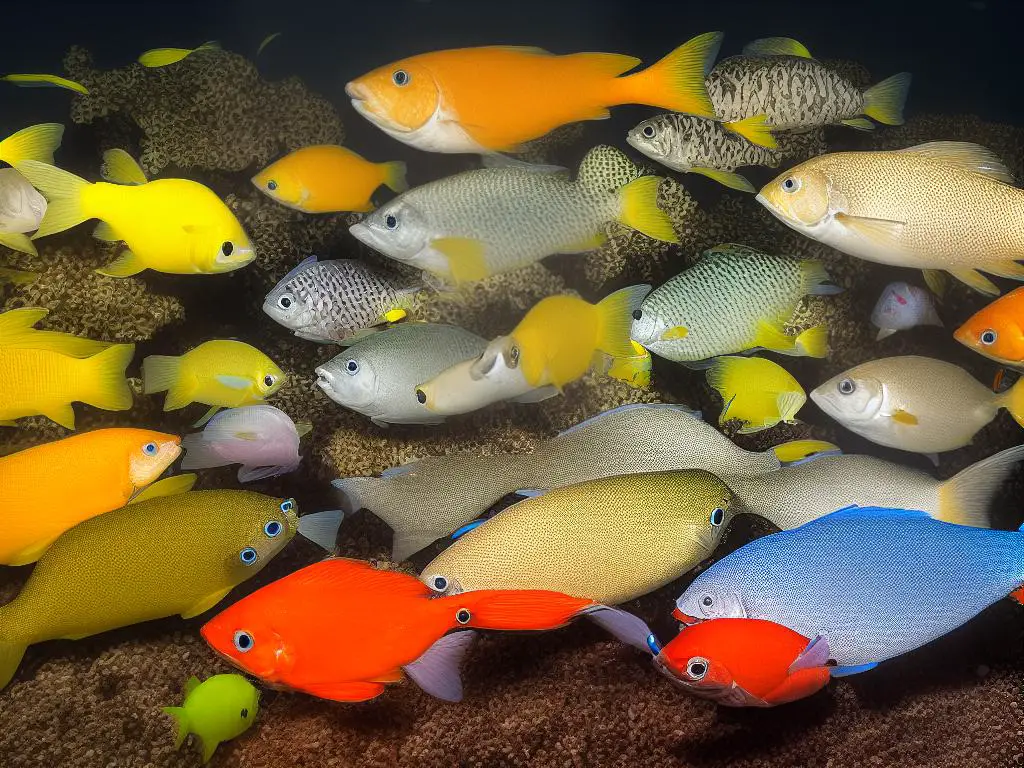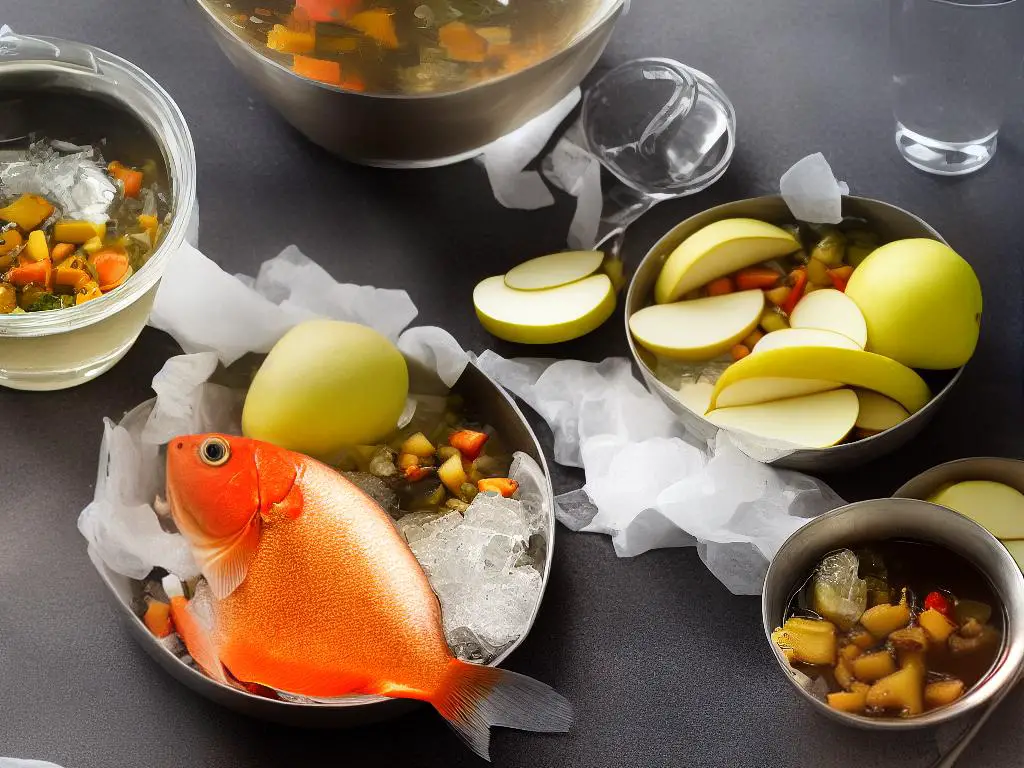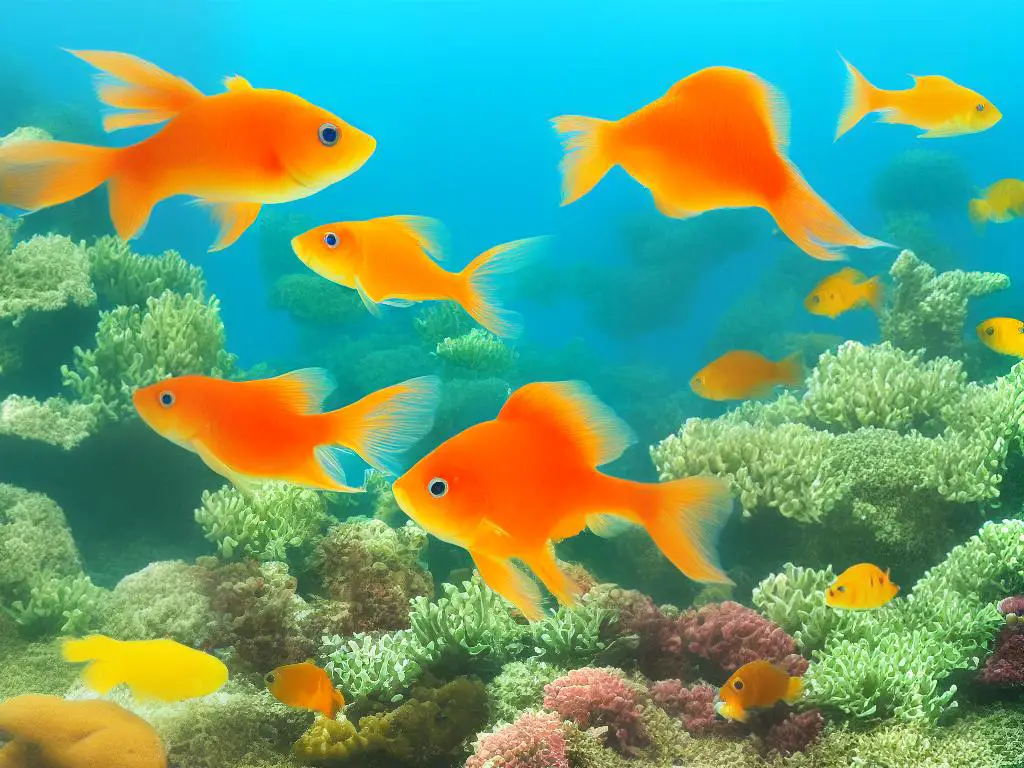Have you ever wondered if fish can eat apples? This may seem like an odd question, but understanding the dietary needs and options for our aquatic friends is essential for their health and wellbeing. In this article, we will dive into the basics of fish diets, their nutritional requirements, and the potential for apples to play a role in their feeding.
Understanding fish diets
Fish have diverse diets depending on their species and natural habitats. In general, fish can be classified into three categories based on their dietary preferences: herbivorous, carnivorous, and omnivorous. Herbivorous fish primarily consume plant matter, such as algae, aquatic plants, and even fruits that fall into the water. Carnivorous fish predominantly feed on other fish and small aquatic animals, such as insects and crustaceans. Omnivorous fish have a mixed diet, consuming both plant and animal matter.
While it may seem peculiar, certain fish species can indeed consume apples and other fruits. This usually occurs in the wild when fruits fall into the water from overhanging trees. Some examples of fish that may eat apples include various herbivorous and omnivorous species, such as pacus, koi, and goldfish. Since fruits like apples are not a staple in their natural diets, it is essential to ensure that any apples fed to these fish are given in moderation and as occasional treats, often chopped up and with seeds removed.
Understanding the dietary preferences of various fish species is essential to ensure their overall health and well-being. Along with adapting to a range of foods, including fruits like apples, it is crucial to provide your pet fish a well-balanced diet that meets their nutritional needs. Consulting with professionals or conducting thorough research on specific fish species’ dietary requirements is highly recommended before introducing new food sources like apples to their diet.

Nutritional requirements of fish
Fish, similar to other living organisms, require a well-balanced diet comprised of essential nutrients such as proteins, fats, vitamins, and minerals, which can be found in their natural diets. These nutrients provide the energy required for survival, support proper growth and development, and contribute to maintaining healthy bodily functions. Although fish primarily feed on smaller organisms like insects, plankton, and other aquatic creatures, understanding their nutritional requirements allows us to determine whether introducing various food sources, such as apples, would be beneficial to their overall diet and health.
Proteins and fats are crucial components of a fish’s diet, as they provide the building blocks for growth, cellular repair, and energy storage. Fish typically acquire these nutrients through their consumption of insects, crustaceans, and other aquatic life forms. In addition, vitamins and minerals ensure proper physiological functioning, with a particular emphasis on bone and muscle development, as well as the maintenance of the immune and nervous systems. While some fish species are herbivorous, the majority of fish primarily consume animal-based diets to derive their essential nutrients.
When considering the nutritional requirements of fish, it is important to evaluate whether apples can be a suitable addition to their dietary repertoire. Although apples are rich in fiber, vitamins, and minerals, they contain relatively low amounts of protein and fat. Furthermore, the majority of nutrients in apples are carbohydrates, which are not a primary nutrient source for most fish species. Additionally, fish may find it difficult to digest large pieces of fruit due to their unique gastrointestinal structures. Consequently, it can be concluded that apples are not an ideal food choice for fish and may not contribute significantly to fulfilling their complex nutritional needs.

Apples as a food source
Despite apples being a popular and nutritious fruit for humans, they might not be the first option as a food source for fish. Nevertheless, apples possess a variety of vitamins and minerals, as well as carbohydrates in the form of natural sugars. Their nutritional content includes vitamin C, vitamin A, and B-complex vitamins such as thiamin, riboflavin, and pyridoxine, along with minerals like potassium, calcium, and phosphorus. When peeled and sliced into small pieces, some fish species may potentially consume apples. However, it is important to keep in mind that these fruits are not an ideal food choice for fish and may not meet all their nutritional requirements.
When considering apples as a food source for fish, it is important to keep certain factors in mind. Firstly, apples should always be fed to fish in small quantities, as too much sugar can have negative impacts on the fish’s digestive system and water quality. The presence of unnecessary sugar in the water can lead to algal blooms and other water quality issues, which in turn can affect the overall health and well-being of fish. Additionally, apples lack the essential amino acids and fatty acids that many species of fish require for optimal growth and health. Therefore, apples should not be used as a substitute for a balanced and species-appropriate diet, but rather as a sporadic treat or supplement.
It is important to note that not all fish species can consume or digest apples, even in small amounts. While some omnivorous and herbivorous fish like goldfish and plecos may be able to process apples effectively, other species may not have the digestive capabilities to handle fruit like apples. Additionally, apples lack certain nutrients that many fish species require, such as high protein content and specific vitamins. Therefore, it is recommended to research and consult with experts on the specific dietary needs and preferences of the fish in question before introducing apples or any other unconventional food items to their diet.

Feeding apples to different fish species
Offering apples to fish can be an intriguing and possibly unconventional addition to their diet, but it may not be suitable for all species. Freshwater omnivorous fish, such as goldfish and some species of cichlids, may benefit from the extra nutrients found in apples. These fish typically consume a diverse diet in the wild, including both plant-based foods and small invertebrates. As such, apples can provide a good source of vitamins, fiber, and natural sugars when given in moderation, potentially contributing to the overall health and well-being of these fish species.
However, some fish species might not be able to digest apples properly and could even suffer from digestive discomfort or blockages. Fish with more specialized diets, such as predatory or exclusively herbivorous species, should not be fed apples. Furthermore, aquarists should take care to thoroughly wash any fruit or vegetable before feeding it to their fish to remove potential contaminants, such as pesticides. Additionally, apples should be cut into smaller pieces suitable for the fish’s size to prevent any risk of choking.
When considering the idea of feeding apples to fish, it is important to take into account the fish’s natural habitat and dietary needs. For saltwater fish, apples may not be a suitable option due to their specific diets and the environment they live in. Marine fish species often have specialized diets based on the food available in their natural habitat, which typically does not include fruit consumption. Moreover, introducing apples to a saltwater tank might lead to an imbalance of nutrients, potentially impacting water quality and the health of other tank inhabitants. Therefore, it is recommended to feed saltwater fish a diet that closely resembles their natural food sources.

Preparing apples for fish consumption
If you intend to feed apples to freshwater fish, it is crucial to prepare the fruit correctly to ensure the fish can consume them easily and safely.
Start by selecting a ripe, fresh apple and washing it thoroughly to remove any dirt, pesticides, or chemicals that may be present on the surface. Next, peel the apple, as some fish might have difficulty digesting the skin and it could potentially lead to digestive issues or blockages. Removing the skin also softens the apple, making it easier for the fish to eat. Finally, consider cutting the peeled apple into small pieces appropriate for the size of the fish to further facilitate safe consumption.
After peeling the apple, be sure to remove the core and seeds as they can pose a choking hazard to the fish. Once the core and seeds are removed, cut the apple into small, bite-sized pieces that are appropriate for the size of the fish you are feeding. Smaller fish will require smaller pieces, while larger fish can consume larger apple bits. The small pieces not only make it easier for the fish to eat but also aid in digestion.
When introducing apples to your fish’s diet, start with a small quantity to see how they react and to avoid overfeeding them. Monitor the fish as they consume the apple pieces to ensure they are not experiencing any difficulties. If the fish seem to enjoy the apples and are not experiencing any adverse effects, such as bloating or diarrhea, slowly incorporate the fruit as a regular part of their diet. Apples can be a tasty and healthy snack for your fish, providing essential nutrients and vitamins when served in moderation and adequately prepared.

Photo by matthewhenry on Unsplash
Now that we’ve explored the possibilities of feeding apples to fish, it’s clear that the compatibility varies depending on the species and their dietary preferences. While some fish might benefit from the nutrients apples provide, others simply cannot digest them properly. When considering incorporating apples into a fish’s diet, always research the specific nutritional needs of the species and consult with experts or experienced hobbyists to ensure their overall health and happiness.
